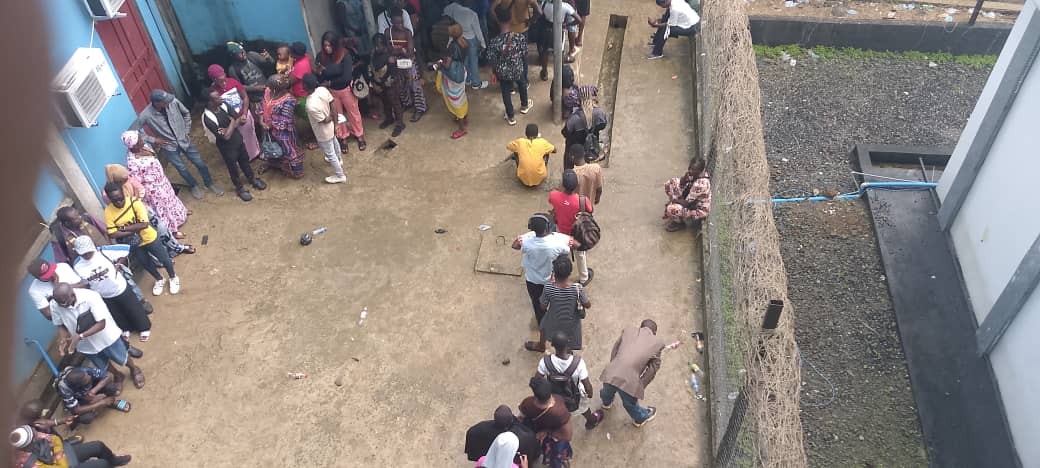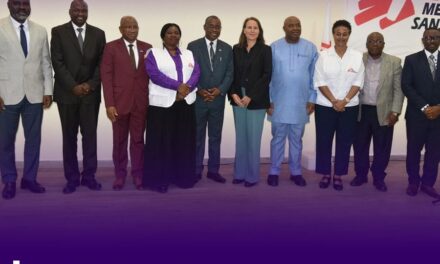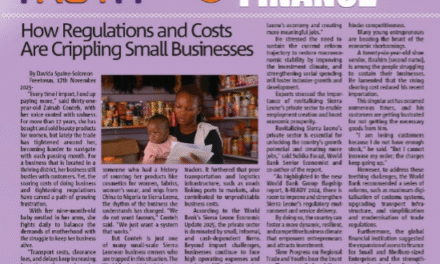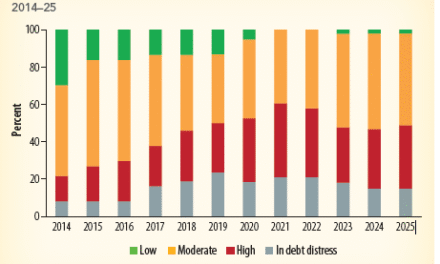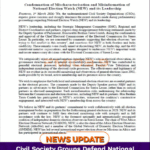By Samuel Hinga Norman
Freetown, September 1st 2025- The process of acquiring biometric ID Cards from the National Civil Registration Authority offices is becoming a source of frustration for many citizens. With many describing the process as slow and time-consuming.
This initiative began in January 2023, when President Julius Maada Bio launched the new Biometric National ID Cards, designed to be secure and multipurpose. Under the National Civil Registration Act of 2016, the National Civil Registration Authority (NCRA) teamed up with the Sierra Leone Police, the Office of National Security, and other agencies to ensure the registration of every citizen aged 12 and above.
The authorities insist that biometric ID cards are essential for national registration, voting, and civil identification.
Yeanoh Wahid, a businesswoman, said that the process is tedious, with long hours lost in queues just to be registered. “The process is time-consuming; even after you have been registered, you will have to wait for two whole weeks before you can get your ID card,” she said. Wahid added that this delay once affected her financial dealings due to the bank’s request for her national ID card before she could access her savings.
Alieu Kargbo, a bike rider, echoed similar frustrations. “The deadline given to us by NatCA is too short. I think they should consider the timeframe, and please extend it for us. Some of us are still hustling for the money to get our ID cards,” he said, referring to the June 2025 directive from the National Telecommunication Authority (NatCA) that all citizens must register their SIM cards using the National Identification Number (NIN) on their ID cards.
Isatu Kanu, a petty trader, said she is scared to go and get her own national ID card. “I truly want to get my own ID card, but I am short of money. The cost is too high, and I have five kids that I’ll have to secure the ID card for,” she said.
For Dauda Idrissa Kamara, a Fourah Bay College student from Lungi, the challenge was not the cost but the distance. With no registration facility in his area, Dauda had to travel about 40 miles on a motorbike to Port Loko town.
On his way home, he reported that he was involved in a motorbike accident that left him with injuries. “I had hopes of being recruited into the military, which inspired me to get my ID card,” he said, his voice heavy with frustration. His experience captures the struggle of many rural residents who feel the biometric process is designed for urban dwellers, while they are left behind.
Abubakarr Javombo, Director of Information, Education, and Communication at the NCRA, said the biometric registration system is vital because it provides each citizen with a unique National Identification Number (NIN). He emphasized that the ID card ensures safety, access to social services, and monetary transactions. “The price of the ID card is next to nothing. If we look at it logically, the ID Card is not expensive if we compare it to the benefits the ID card provides,” Javombo said, adding that the cost is not determined by the NCRA.
Sophie Kelson Sesay, a researcher at Citizens Barray, commended the process, noting its clear benefits. However, she raised concerns about accessibility. “One of my concerns is accessibility for people in the rural community and even in Freetown, and the system itself, the readiness of the system, can it be trusted?” she asked. Her concerns extended to the sensitization of the populace about the process.
The process is more than just about securing an ID card; it is about the hidden costs: long hours lost in queues and the official fee of NLE 140, which some say is simply too high. As Sierra Leone pushes toward a modern identity system, the debate over cost and accessibility lingers. For officials, biometric registration is an investment in the country’s future. For citizens like Isatu and Alieu, the process feels like paying twice, once with money and again with countless hours in line.
Despite government assurances of efficiency, the long queues remain a painful reminder that access to identity in Sierra Leone is still a slow and exhausting journey. For many, the hours wasted in line are just as costly as the fees they must pay.
